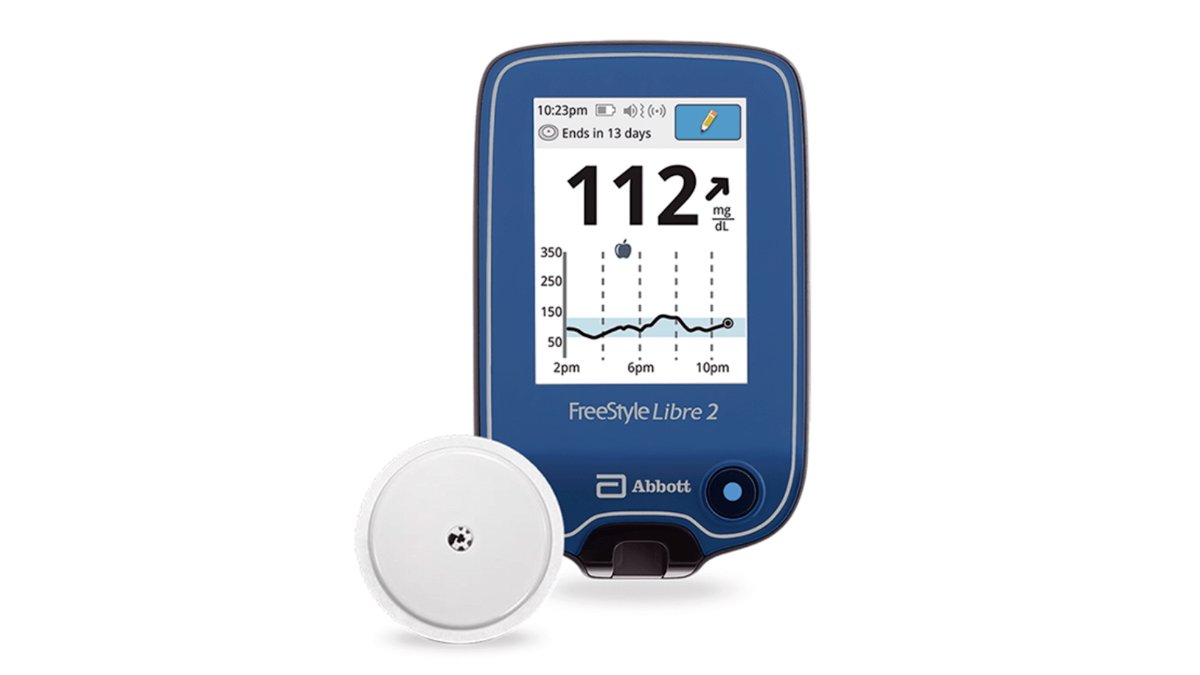Some users in the UK are experiencing a disruption in the functionality of the FreeStyle Libre 2 blood sugar monitoring app following an update, and it underscores the vulnerability of our digital lives.
Abbott, the company responsible for producing the FreeStyle Libre device, claims it is the most widely-used sensor-based glucose monitoring system worldwide. People use a compact sensor implanted in their bodies, transmitting data to a mobile app.
A broken diabetes app
But according to BBC News, after a recent app update, it stopped working on some iPhones — but only for some people in the UK. Abbott offers no explanation for this, and insists that it is working for users in all other countries.
Abbott has also pulled the app from the UK version of the App Store, and says that there is an Android version still available.
FreeStyle Libre is used practically constantly by its users, as they rely on the app to monitor a crucial aspect of their health.
One user, David Burchell, said it was terrifying. "This equipment is supposed to save your life," he said. "I woke up yesterday morning, went to check my sensor thing... and basically it broke, just showing a white screen and I had a panic.
"I've spoken to [Abbott] many times as this sort of thing has happened before. They told me to delete the app, turn the phone off and on and reinstall... but when trying to redownload it they'd taken it off the App Store so I couldn't download it."
Abbott does say that it is working on the problem and intends to return the app to the App Store.
An ebike company close to bankruptcy
Meanwhile, VanMoof, a struggling e-bike startup, has gone into administration, raising questions about the future of its bikes. VanMoof's bikes are so dependent on their related phone app that it's needed for even starting the bike.
If VanMoof's servers go offline during their administration, riders would be left with a less than satisfactory e-bike, which barely works without its software key.
Administration refers to a process started when a company can't pay its debts and faces insolvency. In this state, an administrator is appointed to operate the company to rescue the business, restructure it, or recover funds for creditors.
However, Cowboy, a competitor e-bike company, developed an app called "Bikey" to enable VanMoof riders to generate their unique digital key and keep riding.
Infrastructure going offline
These incidents highlight the vulnerability of connected devices when the servers they rely on go offline. In the case of the diabetes app, users were left without a critical health monitoring tool.
For the e-bike riders, their bikes could become expensive hunks of metal without the necessary software key, although there are two non-app options to start the bikes. Fortunately, Cowboy was able to come to the rescue, but Freestyle Libre users are at the mercy of Abbott until it can fix the app.
It serves as a reminder of the importance of robust server infrastructure for connected devices and the need for contingency plans when things go wrong. As the world becomes more interconnected, the reliability of the servers that power our devices will grow in importance.
 Andrew Orr
Andrew Orr







-m.jpg)






 Charles Martin
Charles Martin
 Christine McKee
Christine McKee
 Wesley Hilliard
Wesley Hilliard
 Malcolm Owen
Malcolm Owen

 William Gallagher
William Gallagher
 Sponsored Content
Sponsored Content








20 Comments
The Libre is applied to the body, it is not implanted.There is a very small wire sensor that is under the skin but is not permanent as the article seems to suggest. The sensor lasts for up to 2 weeks and then is removed and disposed of.
The person that panicked, panicked unnecessarily.
No CGM system is a complete substitute for a pin prick test.
They are great for many things. Many good things but any strange or, in this case, zero readings, must be backed up by a pin prick test.
A PITA if you've become accustomed to a sensor/app combo but definitely not a life threatener, save for some really unstable patients.
We are more dependant on server side issues nowadays and quality control for certain apps is more pressing for some types of apps than others but a server going offline permanently isn't really all that different to 30 years ago when an app got abandoned and format support was lost.
That said, more legal protections should be put in place to give consumers more cover.
"Vulnerability of our digital lives" is a euphemism for "internet of shit."
I can't imagine being in a position where a loss of the tech (monitor and app) threatens my life. People didn't stock a backup manual test kit?
A bike that doesn't work without an app? That's just foolish.